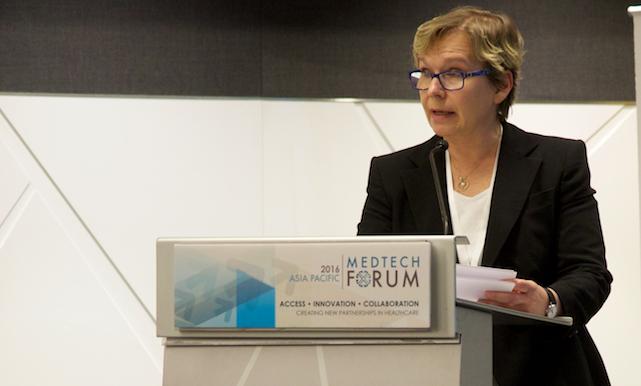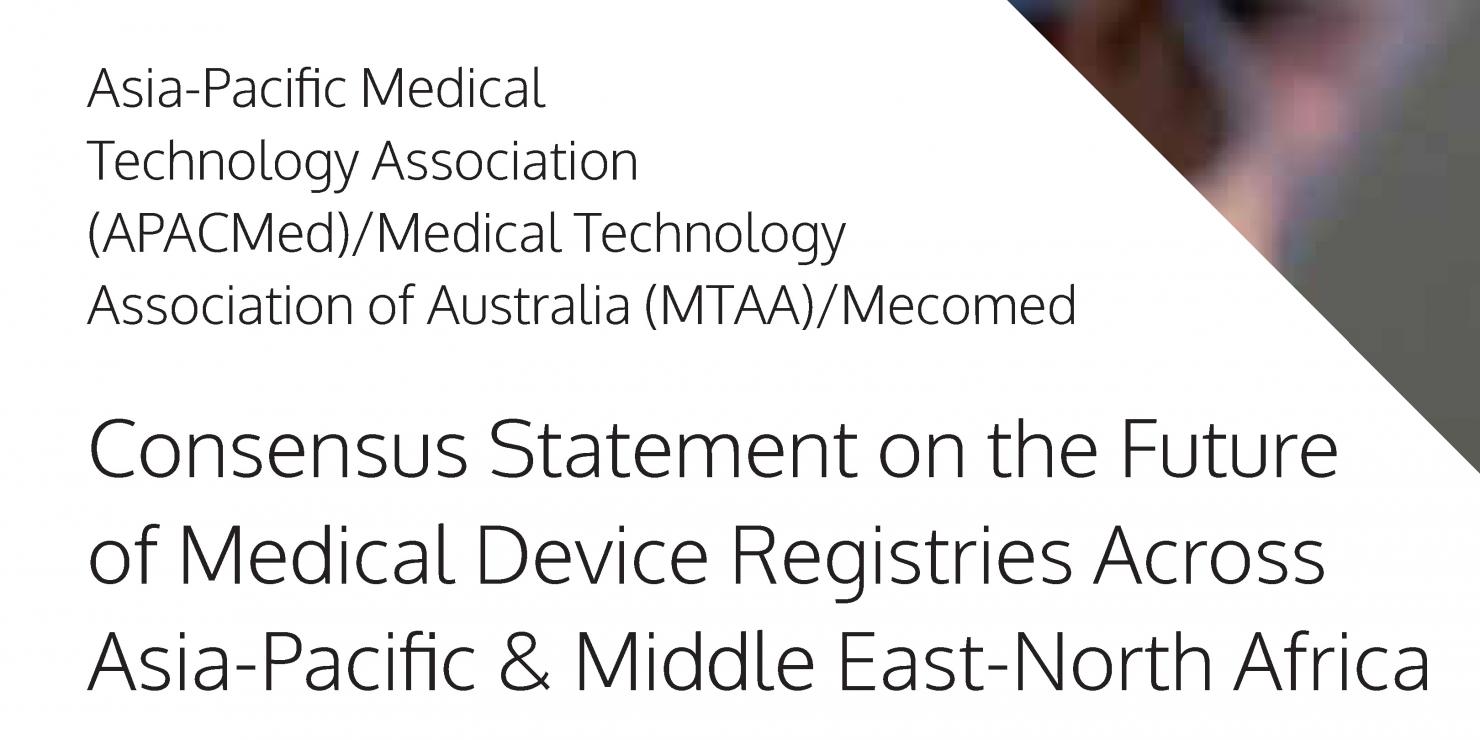Consensus Statement on the Future of Medical Device Registries Across Asia-Pacific & Middle East-North Africa
- 08 Feb 2017
- Position papers







The Asia Pacific Medical Technology Association (APACMed), the Medical Technology Association of Australia (MTAA) and Mecomed (Middle East and North Africa) announced today the release of a Consensus Statement on the Future of Medical Device Registries.
Medical device registries enable longitudinal tracking of patient outcomes and device performance serving as a compelling tool in providing real-world data.
“This landmark paper characterises current region-specific gaps across three continents and provides recommendations for the responsible development, implementation, and maintenance of a medical device registry. Establishing credible data metrics is essential to facilitate safe, appropriate therapy access for our patients. To that end, we anticipate this document will serve as a reference standard for providers, payers, patients, policy makers, and other interested stakeholders”, said Dr. Amit Shanker, Chair of the APACMed Medical and Clinical Affairs Committee and Boston Scientific CMO for Asia-Pacific/Middle East/Africa.
However, there remain significant barriers to initiate a new registry across Asia-Pacific and MENA, ranging from the scarcity of qualified, dedicated staff to the lack of data warehouses and analytical centres.
“Whilst local hospitals and governments may be willing to invest in medical device registries, ongoing commercial support may be necessary to collaboratively build these capabilities”, explained Val Theisz, Director of Regulatory Affairs, of the MTAA. “This presents us with a unique opportunity to strengthen public - private collaborative partnerships”.
Commenting on the guiding principles set out in the statement, and echoing the need for collaboration Inna Nadelwais, Executive Manager, Mecomed, commented: “Our intention is to provide a blueprint for medical devices registries in the region. While most of the technology for managing a registry already exists, the complexity lies in establishing appropriate governance and transparent funding, as well as determining what we want to measure, and how we can collect, access and report quality data. This will require input from across the healthcare ecosystem”.